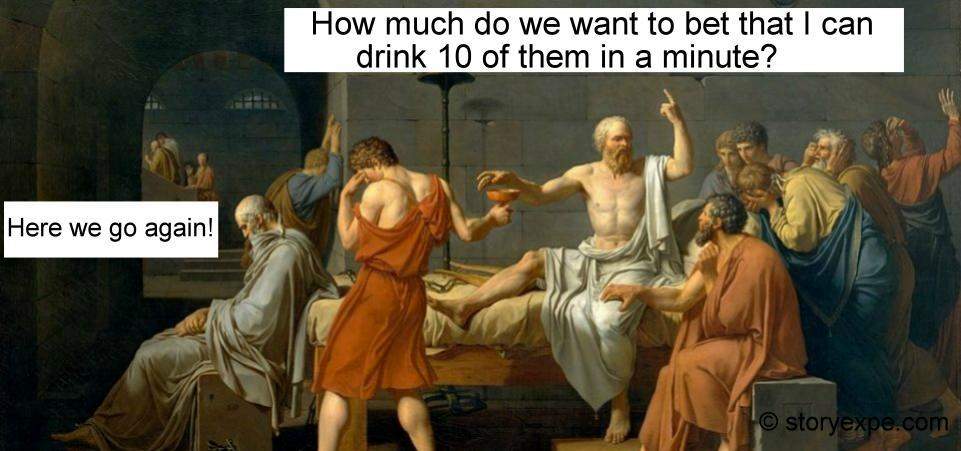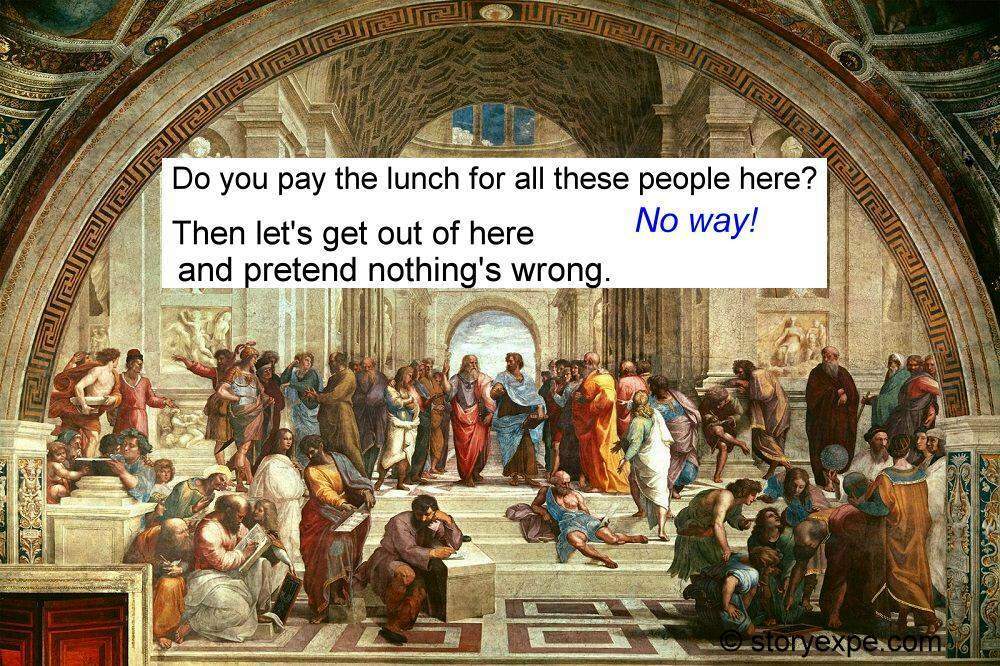WHAT'S NEW / AREA CHARACTERISTICS
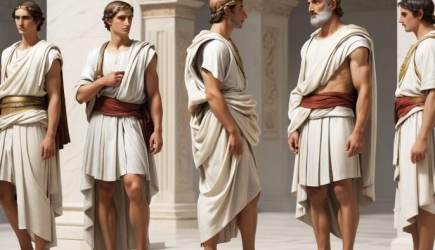
FEATURED COMMUNITIES / PROFILES
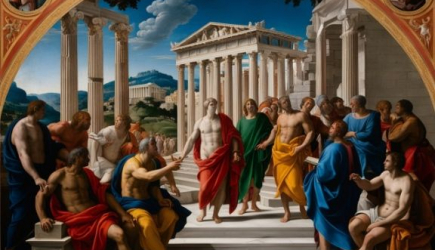
ART GALLERY
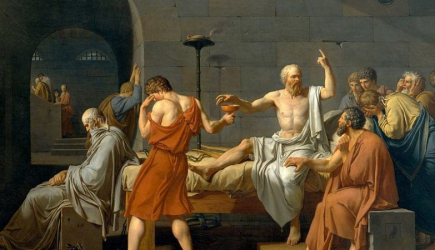
FEATURED CONTENT
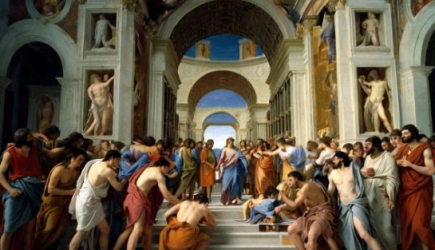
TOPICS / DISCUSSIONS
FEATURED COMMUNITIES
This is a free area for communities to get featured on Storyexpe. Main criteria are: originality, relevance and engagement. For this reason, no paid options area available to get featured in this area with your free profile or with a group (read more).
HOW TO GET FEATURED:
Just create a thematically related and relevant presence with your profile, or create a group (this option available only for Storyexpe Residents - read more).
MOST POPULAR TOPICS
Alexander The Great
What would he have accomplished if he had lived today? How – and in which extension – would he have realized his own ambitions? Expressed his personality? If not in the military field, considering the opportunities of the modern era, in what others?
Certainly not all of us have had a teacher like Aristotle. Alexander the Great did. And apparently he listened to him quite a bit.
Stoicism
Stoicism offers practical tools and techniques that can be easily applied to daily life, making it appealing to those seeking to improve their well-being and resilience. The Stoic principles of focusing on what you can control and accepting what you cannot are particularly relevant in today’s unpredictable and complex world.
Stoicism and emotional resilience. Stoic principles are often applied to cope, among others, with stress and anxiety.
Classical and Hellenistic art
The enduring influence of Classical and Hellenistic art on contemporary ideals of beauty is a testament to the timeless appeal and foundational principles established by ancient Greek artists. By emphasizing proportion, symmetry, and the idealization of the human form, these artistic traditions continue to shape our visual culture and aesthetic standards.
Classical Greek art is renowned for its idealized representations of the human body, emphasizing proportion, symmetry, and balance.
The use of the Golden Ratio, a mathematical principle believed to create aesthetically pleasing proportions, was prevalent in Greek art and architecture. This concept continues to influence modern design, from architecture to graphic arts.
Mythology vs. modern superheroes
Modern superheroes, as represented in contemporary movies, are heavily influenced by ancient mythology. This influence is evident in their origins, characteristics, narratives, and the way they embody cultural values.
Figures like Hercules, Perseus, and Thor represent the archetypal hero who possesses extraordinary strength, courage, and divine lineage. These heroes undertake epic quests, face formidable foes, and often have a tragic flaw. Characters such as Superman, Wonder Woman, and Thor (adapted directly from Norse mythology) echo these archetypes.
Many mythological heroes are demigods, born of a god and a mortal, combining divine power with human vulnerability.
Similarly, superheroes often have dual identities or origins that blend the ordinary and the extraordinary. Spider-Man is a regular teenager who gains powers from a radioactive spider bite.
CONVERSATIONS FROM STORYEXPE RESIDENTS:
Stoicism: the art of daily reflection.
Stoics don’t avoid challenges: they embrace them. Every setback is an opportunity for growth. Reframing obstacles as opportunities is central to stoic thinking.
Know thyself: the power of self-awareness
Socrates’ famous dictum 'know thyself' encourages us to look inward. How can understanding ourselves more deeply lead to greater fulfillment? Self-awareness is the first step toward personal growth and a well-lived life, and has never been as timely as it is today (OK, I wasn't around 2,500 years ago to make a direct comparison... but maybe the more experienced Storyexpers).
The importance of virtue over external success
"In the rush to succeed, stoicism teaches us that true happiness comes from inner virtue, not external achievements. Cultivating virtue (wisdom, courage, justice, and moderation) leads to lasting fulfillment.
The role of ethics in ancient philosophy.
Ethics was central to the works of Socrates, Plato, and Aristotle. How do their ideas about right and wrong shape our moral compass today?
Negative visualization: preparing for life’s challenges.
You probably know this question... I know it very well: "What if the worst happened?"
Stoics use negative visualization to prepare for adversity and appreciate what they have. Practicing mental preparedness can make us more resilient. But I must admit... it takes a lot of practice.
What can we actually control?
"Stress often comes from trying to control the uncontrollable. Stoicism teaches us to focus only on what’s in our hands. Fact is, we can control our thoughts and actions, but not external events or others’ responses.
"The only true wisdom is in knowing you know nothing."
Socrates
"There is only one good, knowledge, and one evil, ignorance."
"Strong minds discuss ideas, average minds discuss events, weak minds discuss people."
"The unexamined life is not worth living."
"Wonder is the beginning of wisdom."
"The secret of happiness, you see, is not found in seeking more, but in developing the capacity to enjoy less."
"He who is not contented with what he has, would not be contented with what he would like to have."
"When the debate is lost, slander becomes the tool of the loser."
"Sometimes you put walls up not to keep people out, but to see who cares enough to break them down."
"By all means marry; if you get a good wife, you’ll become happy; if you get a bad one, you’ll become a philosopher."
"To find yourself, think for yourself."
"Those who tell the stories rule society."
"We can easily forgive a child who is afraid of the dark; the real tragedy of life is when men are afraid of the light."
"Wise men speak because they have something to say; fools because they have to say something."
"The price good men pay for indifference to public affairs is to be ruled by evil men."
"Good people do not need laws to tell them to act responsibly, while bad people will find a way around the laws"
"Only the dead have seen the end of war."
"One of the penalties of refusing to participate in politics is that you end up being governed by your inferiors."
"Education is teaching our children to desire the right things."
"In politics we presume that everyone who knows how to get votes knows how to administer a city or a state. When we are ill... we do not ask for the handsomest physician, or the most eloquent one."
"Educating the mind without educating the heart is no education at all."
"Excellence is never an accident. It is always the result of high intention, sincere effort, and intelligent execution; it represents the wise choice of many alternatives - choice, not chance, determines your destiny."
"To write well, express yourself like the common people, but think like a wise man."
"Those who know, do. Those that understand, teach."
"The aim of art is to represent not the outward appearance of things, but their inward significance."
"It is during our darkest moments that we must focus to see the light."
"He who has overcome his fears will truly be free."
"Patience is bitter, but its fruit is sweet."
